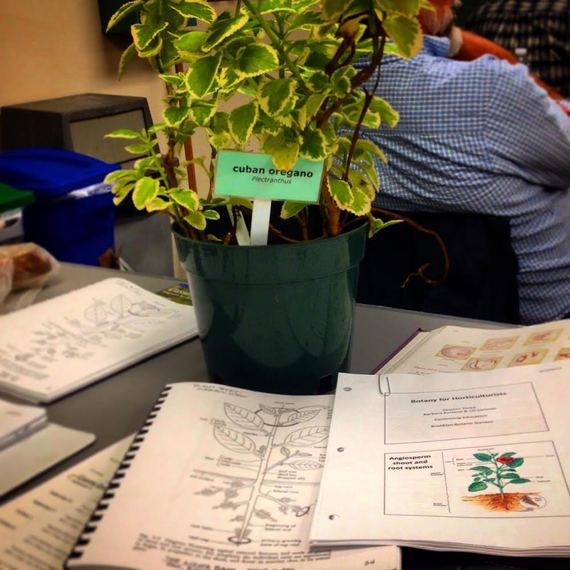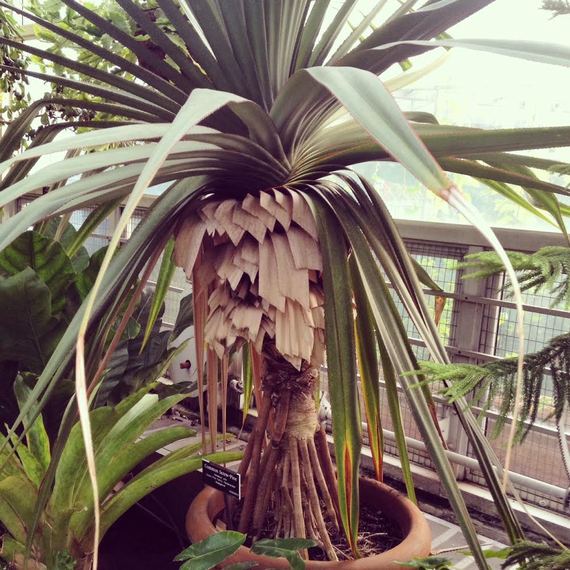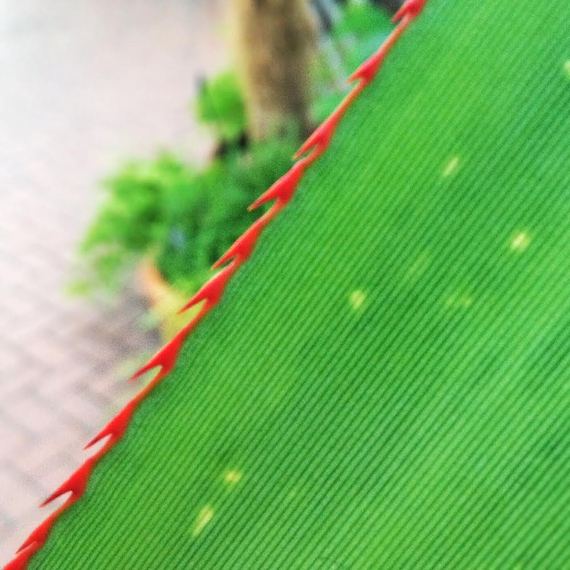Do you know why plants wilt?
I didn't... or at least I couldn't remember until I started taking a hands-on botany course at the Brooklyn Botanic Garden.
Relearning the fundamentals of botany, as an adult, is a tedious endeavor. While there are plenty of websites and a few podcasts about the principles of horticulture (I'm rather partial to BBC Radio 4's In Our Time With Melvyn Bragg's episode on photosynthesis), learning about the science of plants on your own, without the mentorship of a skilled horticulturalist, takes a tremendous amount of focus.
A struggle I have with trying to learn (or, in the case of botany, relearn) science as an adult is that it's often a solitary activity. Working in a children's museum requires me to know a little bit about a wide variety of science topics. I'm constantly trying to promote interactive science experiences for kids, but outside museums I haven't found consistent hands-on opportunities for adults to deepen my understanding of science.
So why am I trying to rekindle my lost knowledge of ninth-grade botany? One amazing space in Brooklyn Children's Museum that remains a bit of a scientific mystery to me is our outdoor urban garden. The garden launched in 1977 and has been molded over time to become a lovely shade garden in the middle of Crown Heights, Brooklyn. It's sprinkled with educational exhibits with kid-friendly themes like color, butterflies and shapes, and children can often be found watering (mostly over-watering) plants of all varieties. The garden is open for friendly experimentation -- an important feature for urban kids, who rarely get the chance to touch or be in the presence of such a wide variety of plants.
A long line of devoted science educators have maintained the garden, and when a recent staffing transition meant a changing of the guard, I decided that it was time for me to get serious about the science behind what makes things grow. Luckily, the Brooklyn Botanic Garden is just a few miles away and holds regular botany classes as a part of their certificate in horticulture program.
The certificate program is a series of continuing-education courses for adults aimed at those looking for careers in horticulture, or gardeners who want to take their love of plants to the next level. I fall somewhere in between. I definitely need to know more about modern garden maintenance to help support our garden, and like many New Yorkers, I have a passion for houseplants that borders on eccentricity. When you can't have a plot of land, you try to co-opt a kitchen windowsill, or any room that receives semi-decent light, to engage in apartment gardening.
In our first class at the Garden, the 20 or so adults in the room learned that horticulture is the art, industry, and science of plant cultivation. One way to refine the "science" part is to review the core teachings of botany, a subject that almost all students encounter numerous times throughout their scientific education. As soon as class started, a flood of random botanical memories rushed to the forefront of my mind:
I remembered torturing a small number of houseplants in the eighth grade for my yearly science project, in which I put plants in different dark environments to see if they would grow. My science teacher didn't quite understand my desire to test out whether photosynthesis could happen in a refrigerator, but she did give me good marks for my well-drawn diagram of a plant cell.
We took botany to the next level in the 10th grade by dissecting a flower -- not the most exciting of dissections (earthworms and fetal pigs would follow), but I distinctly remember being excited to use a scalpel.
During my senior year of college, I took an infamous class called "Plants and Humanity." This was a class for non-science majors who needed to complete their lab requirement. Everyone wanted to be in this class because we made beer and wine to understand how plants could be of use to humanity.
All these formal learning experiences involved an exciting array of hands-on experimentation. Luckily, the class at BBG utilizes a wonderful education collection that you can touch. And sometimes, if you're really lucky (and walking around with one of the lead horticulturalists), the pristine botanical garden can become hands-on too.
During a session on plant evolution, we toured BBG's Steinhardt Conservatory. As we came across the wonderfully twisted common screwpine, our instructor let us get up close and personal with one of the spiked leaves.
As he sliced the leaf off the plant, each class member delicately passed it around, wary of the sharp spines the plant has developed to protect itself. Somehow I happened to be the last person to hold the plant and had to carry it around the conservatory while our tour continued.
Holding this spiky leaf for an uncomfortable amount of time helped me contemplate the message of the session: Plants have evolved to protect themselves -- which is pretty impressive for something that can't pick itself up out of the ground and run away from a predator.
This intense experience with plant evolution is now engrained in my memory thanks to the progressive methodology utilized by the instructors at BBG. If science instruction for adults involved hands-on applications, would more adults want to deepen their understanding of science? This type of methodology is at the forefront of the "maker movement," which involves tinkering and celebrating a culture of do-it-yourself technology and craft. How can we create an environment of hands-on inquiry for science subjects like biology and physics that also require a massive amount of content knowledge? We're constantly stressing hands-on science to help improve critical thinking skills for pre-K to high-school students, but why are adults left out of the fun?
If you've experienced an unusual course or workshop for adults that involved hands-on science learning, feel free to mention them in the comments section below.



